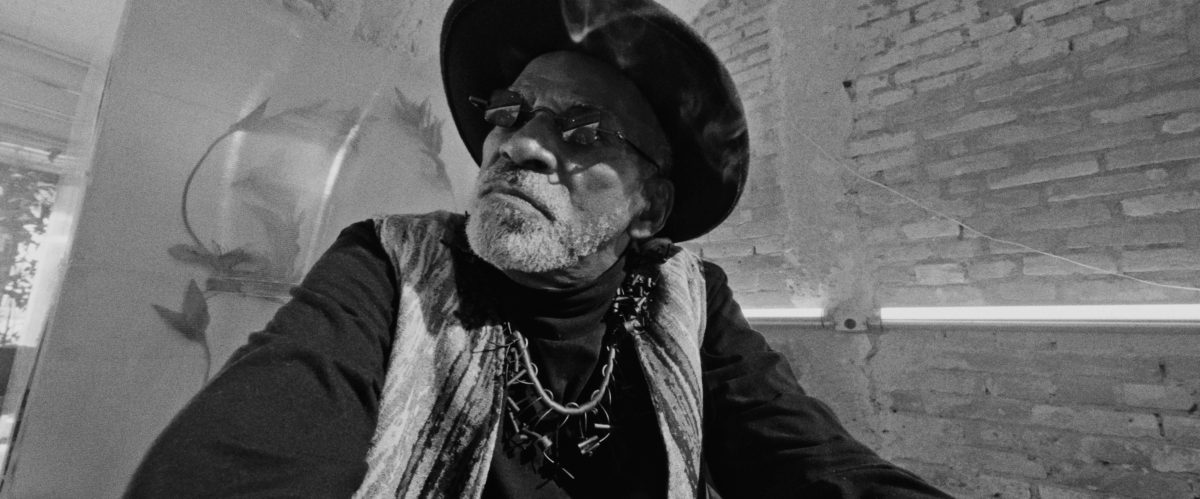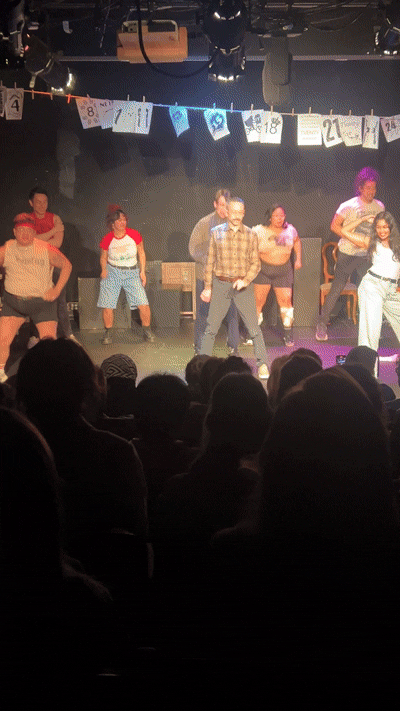A unique solution to the Bay Area’s housing crisis and cultural decay needs you to take action right now! The Music Menagerie is a new and vital non-profit organization founded by local queer Black artist Latashia Govan.
The author of this story would like to emphasize the word ‘vital,’ because this could be the Bay Area’s last chance at recovering from the mass exodus of artists following the devastation of COVID19. It is no surprise that homelessness has gotten worse since the pandemic, but with enough support, an innovative idea such as this can change that. Permanently.
TheMusicMenagerie.org
The team comprises not only of Latashia “Sarge” Govan as President of the Music Menagerie, but also Eric Horvath, lighting specialist, stage manager, and treasurer of the organization, and Secretary Jason Lewis, contractor, business owner, and Vallejo Chamber of Commerce member.
According to Latashia Govan, their mission statement is to “build communities where low income, creatives, BIPOC, LGBTQIA, and homeless seeking housing can live, work, create while enhancing a quality of life to make an educational, safe, affordable, and harmonious environment.”
The Music Menagerie offers community gardens, shipping containers converted into tiny homes and art studios, affordable rent, mental health services, lectures on commerce, and event space for workshops and performances onsite. However, her vision does not end there. This ambitious project has the tools and skillset necessary to expand their resources to other cities on a national level. However, they need help getting started, and there is but a window of opportunity for that to happen. The Music Menagerie has less than 30 days to raise $100k in donations in order to secure their flagship location in sunny Vallejo, where Latashia is originally from.
Latashia “Sarge” Govan is a visual artist, event producer, performer, and activist. She is a well-known and respected public figure in San Francisco’s Drag, Burlesque, and other queer arts societies. Latashia has won international awards for her performances abroad. She has been involved in the underground warehouse, tiny home, and bus life scenes for the past 10 years. Latashia and her partner Eric Horvath were forcefully pushed out of their warehouse due to closures following the 2016 Ghost Ship Fire that killed 36 people, a crippling blow to Bay Area artist communities locally and abroad. Latashia is constantly reminded of that night, for she would have been there had her flight from Berlin not been delayed.
Image of the Ghost Ship fire from Wiki Commons
Perhaps this served as a wakeup call for her to want to invest so much energy into creating a safe space for low-income artists, in an attempt to recover what was lost of the Bay’s fragile cultural ecosystem. Latashia recognizes that “arts and culture are essential for building community, supporting development, nutrition, health, wellbeing, and contributing to economic opportunity.” In 2015, San Francisco’s nightlife generated $6 billion for the local economy and created 60,000 jobs. What this means is that art and culture are the lifeblood of a city. They are what has made SF a place of global, historical significance, and are the cause for its economic prosperity.
The situation is more dire than ever. One study in SFGate estimated that an individual must make $110,000 to live comfortably in the Bay Area. This information is from 2017, before the initial lockdown. Currently, an estimated 700,000 households are behind on rent in California alone. That number spikes up to 5,861,000 nationwide, with an estimated $20,298,100,000 total rent debt and average $3,500 per household, according to the National Equity Atlas.
These numbers correspond to higher suicide rates, heart disease, and hypertension among individuals within those same households. Of those who are behind on rent, and experiencing job and income losses as a direct result of the epidemic, 66% are people of color. An arts scene cannot thrive under such circumstances, nor will its environment and those who live there.
This photo of homelessness in San Francisco is from Wiki Commons.
Government relief is not enough to save San Francisco, let alone the entire country. These issues require creative problem-solving and grassroots support. One strategy The Music Menagerie plans to implement for its community gardens and homeless occupants is the Pay-It-Forward method, in which contributions may be given out of generosity, but payment for use of these facilities is not a requirement. An example of this method’s success is the Karma Kitchen, a volunteer restaurant in Berkeley that first opened up in March 2007 and has since developed locations all over the globe. The meals cost $0 for guests and volunteers alike as a way of promoting gift-giving economy based on shared commitment instead of one that relies on self-isolating competition and exploiting capital.
This is a call to action. The Music Menagerie is ready to provide affordable housing, artist refuge, free meals, community gardens, gallery installations, fundraising events, mental health services, and free education to low-income creatives struggling to survive in the Bay Area and elsewhere. They need help and are humbly asking for your support. Please spread awareness of The Music Menagerie to your friends and families, and restore the Bay Area’s arts and culture to its former glory. Let us reclaim what we have lost.
You can donate right here.
The post Vital Bay Area Refuge For Low Income Artists Needs Your Help! appeared first on Broke-Ass Stuart's Website.





